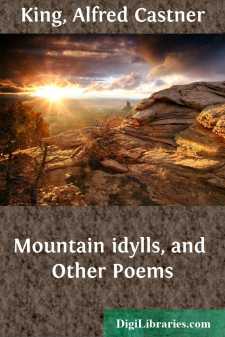Categories
- Antiques & Collectibles 13
- Architecture 36
- Art 48
- Bibles 22
- Biography & Autobiography 815
- Body, Mind & Spirit 144
- Business & Economics 28
- Children's Books 18
- Children's Fiction 14
- Computers 4
- Cooking 94
- Crafts & Hobbies 4
- Drama 346
- Education 58
- Family & Relationships 59
- Fiction 11834
- Games 19
- Gardening 17
- Health & Fitness 34
- History 1378
- House & Home 1
- Humor 147
- Juvenile Fiction 1873
- Juvenile Nonfiction 202
- Language Arts & Disciplines 89
- Law 16
- Literary Collections 686
- Literary Criticism 179
- Mathematics 13
- Medical 41
- Music 40
- Nature 179
- Non-Classifiable 1768
- Performing Arts 7
- Periodicals 1453
- Philosophy 65
- Photography 2
- Poetry 896
- Political Science 203
- Psychology 44
- Reference 154
- Religion 515
- Science 126
- Self-Help 85
- Social Science 82
- Sports & Recreation 34
- Study Aids 3
- Technology & Engineering 59
- Transportation 23
- Travel 463
- True Crime 29
Our website is made possible by displaying online advertisements to our visitors.
Please consider supporting us by disabling your ad blocker.
Mountain idylls, and Other Poems
Description:
Excerpt
PREFACE
"Of making many books there is no end."—Eccles. 12:12.
When the above words were written by Solomon, King of Israel, about three thousand years ago, they were possibly inspired by the existence even at that early period of an extensive and probably overweighted literature.
The same literary conditions are as true to-day as when the above truism emanated from that most wonderful of all human intellects. Every age and generation, as well as every changing religious or political condition, has brought with it its own peculiar and essentially differing current literature, which, as a rule, continued a brief season, and then vanished, perishing with the age and conditions which called it into being; leaving, however, an occasional volume, masterpiece, or even quotation, to become classic, and in the form of standard literature survive for generations, and in many instances for ages.
Poetry has always occupied a unique position in literature; and though from a pecuniary stand-point usually unprofitable, it enjoys the decided advantage of longevity.
The mysterious ages of antiquity have bequeathed to all succeeding time several of earth's noblest epics, while the contemporaneous prose, if any existed, has long lain buried in the inscrutable archives of the remote past.
The two most notable of these, the Iliad and the Odyssey, are believed to have been transmitted from generation to generation, orally, by the minstrels and minnisingers, until the introduction or inception of the Greek alphabet, when they were reduced to parchment, and, surviving all the vicissitudes of time and sequent political and religious change, still occupy a prominent place in literature.
The Book of Job, generally accepted as the most ancient of writings, now extant, whether sacred or secular, was doubtless originally a primitive though sublime poetical effusion.
The prose works contemporaneous with Chaucer, Spencer, and even with that most wonderful of literary epochs, the Elizabethan age, are now practically obsolete, while the poetical efforts remain in some instances with increased prominence.
Someone, (although just who is difficult to determine,—though it savors of the Greek School of Philosophy,—)has delivered the following injunction: "Do right because it is right, not from fear of punishment or hope of reward." Waiving the question as to whether it is right or not to compose poetry, he who aspires in that direction can reasonably expect no material recompense, though the experience of Dante, Cervantes, Leigh Hunt, and others, proves conclusively that poets do not always escape punishment. In fact, about the only emolument to be expected is the gratification of an inherent and indefinable impulse, which impels one to the task with equal force, whether the ultimate result be affluence or a dungeon.
The author of this unpretentious volume has long questioned the advisability of adding a book to our already inflated and overloaded literature, unless it should contain something in the nature of a deviation from beaten literary paths....


